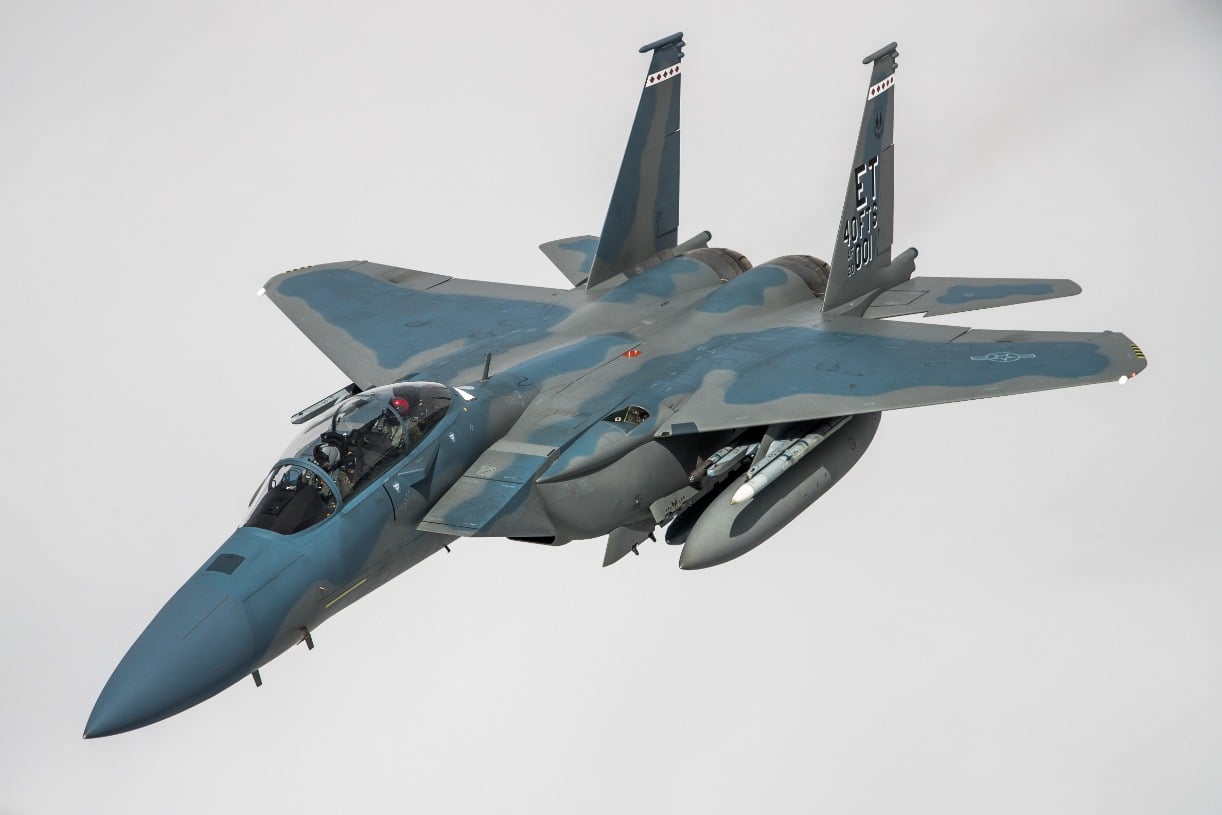Poland's Path to the F-15EX Fighter
Poland is considering purchasing 32 F-15EX fighters but wants to replace the General Electric F110-129 engines with Pratt & Whitney’s F100 engines, which align with Poland’s local industrial capabilities.
Summary: Poland is considering purchasing 32 F-15EX fighters but wants to replace the General Electric F110-129 engines with Pratt & Whitney’s F100 engines, which align with Poland’s local industrial capabilities.

-This move has caused friction, with GE opposing the switch, as they hold the exclusive contract for the F-15EX’s engines. Pratt & Whitney argues that the switch would be easy and enhance performance.
-Poland’s push for the engine change reflects its strategic concern over a potential conflict with Russia, aiming to ensure in-country maintenance of its fleet to avoid reliance on vulnerable global supply chains.
-For Poland, securing these capabilities is essential for defense.
Poland Wants Different Engines for Their F-15EX
America is supposedly only as strong as her allies. But with all the talk about the virtue of allies, European allies are negatively affected by competition among U.S. defense firms and its effect on allied needs.
On the one hand, European countries have no qualms about purchasing American platforms such as the F-15EX. But sometimes the Europeans want different components for those birds. Such is the case with Poland.
In the case of the F-15EX, there is a real desire on the part of Poland to remove the General Electric F110-129 engines that power the F-15EX and replace them with the Pratt & Whitney F100 turbofan engine. Poland’s desire for the switch is a complicating factor for Boeing, which produces the F-15EX.
Poland could purchase 32 airframes from Boeing. Warsaw, however, is also looking at the Eurofighter Typhoon as well as possibly adding to its order of Lockheed Martin’s F-35. Boeing absolutely needs to make this sale, for a variety of reasons. It would be a financial boon for the flagging U.S. corporation.
The Switcharoo on F-15EX
Warsaw insists they be allowed to switch the engines.
General Electric, the exclusive contract holder for the F-15EX’s engines, opposes this move. But corporate representatives from Pratt & Whitney argue that the switch is easier than what GE lets on.
According to their reps, one would only need to conduct a limited set of “low risk” integration tests, and not the complex certification process that such a move would usually require.
Pratt & Whitney is likely correct in this assumption.
After all, Pratt & Whitney was bidding against GE for the initial competition to become the engine provider for the F-15EX during that plane’s development. They ultimately lost out to GE. For most of these birds – notably those used by the United States – GE has exclusive rights.
Nevertheless, the GE F110-129 is a fairly close fit for the F-15EX. There would be no need to fundamentally change the existing airframe.

Getting one more dig in at their corporate competition over at GE, the Pratt & Whitney folks claimed that their engine, the F100, has a “superior thrust-to-weight ratio compared to the F110.” They further argued that the F100 “offers additional bleed and horsepower extraction margin” that increases the performance of the F-15 in ways that the GE engine does not.
GE, of course, is fighting this potential move by Poland. Boeing is in a pickle because it supports the sale. It knows that if Warsaw really wants to, Poland could easily purchase either the Eurofighter or additional F-35s.
But the Poles think it might be more economical to go with the American-made Fourth-Generation+ warplane, the new F-15EX. And the Boeing bird does offer some excellent capabilities that might be useful in deterring Russia from further aggression in Europe.
It's About Supply Chains in War
The key thing to understand, though, is that the industrial infrastructure of Poland supports Pratt & Whitney. The firm has a significant presence in Poland, whereas GE does not. Even if GE were to try to stand up their presence in Poland, it would take too long. Poland needs to add the 32 modern fighters to its fleet right now.
In fact, Poland’s desire to swap out the engines for a system that has indigenous production capabilities is key to understanding Polish leadership’s overall strategic thinking. They fear a war with Russia. Poland’s leaders have to consider a worst-case scenario where Russian forces manage to defeat Ukraine entirely and are sitting on the border with Poland, raring to start something with Warsaw.
In that case, Poland will need all the advanced systems it can buy and build.
At the same time, though, Poland being so close to a potential front with Russia means that Warsaw will need to have the ability to maintain these fighters in-country rather than constantly relying on extended and brittle supply chains with the Americans. By having the Pratt & Whitney engines in a potential F-15EX buy, Warsaw can ensure seamless maintenance of the F-15EX fleet.

It's not the 1990s anymore. The idea of global supply chains being sustained through what very well may become a world war is absurd. They won’t be. In fact, they’ll be the first thing targeted. Poland knows this. So they are trying to make their country anti-fragile.
If Poland decides to purchase the F-15EX over the F-35 or Eurofighter, the U.S. government should use its leverage to shut down GE’s opposition to the engine switch. This isn’t about enhancing corporate profits. This is about making sure Poland can survive whatever their leaders fear is coming down the pike.
That’s what allies do.
Author Experience and Expertise: Brandon J. Weichert
Brandon J. Weichert, a National Interest national security analyst, is a former Congressional staffer and geopolitical analyst who is a contributor at The Washington Times, the Asia Times, and The-Pipeline. He is the author of Winning Space: How America Remains a Superpower, Biohacked: China’s Race to Control Life, and The Shadow War: Iran’s Quest for Supremacy. His next book, A Disaster of Our Own Making: How the West Lost Ukraine, is due October 22 from Encounter Books. Weichert can be followed via Twitter @WeTheBrandon.
All images are Creative Commons or Shutterstock.
From the Vault
Russia Freaked Out: Why the U.S. Navy 'Unretired' the Iowa-Class Battleships
Battleship vs. Battlecruiser: Iowa-Class vs. Russia's Kirov-Class (Who Wins?)


